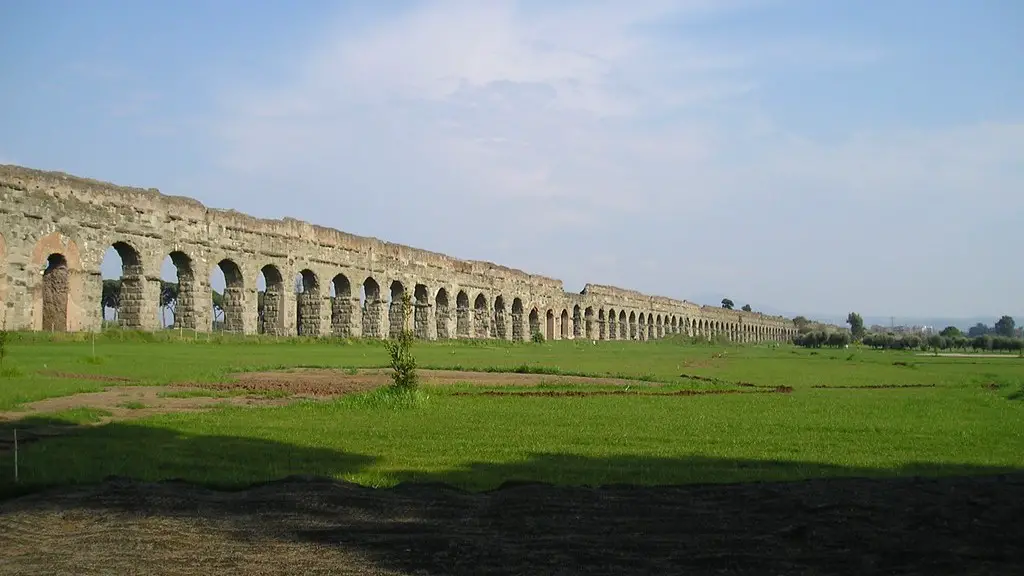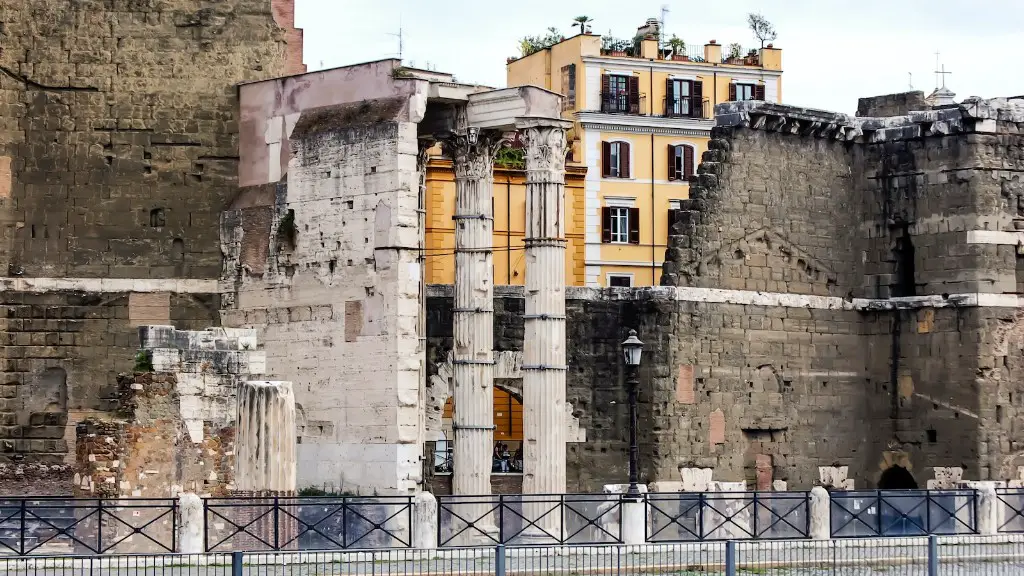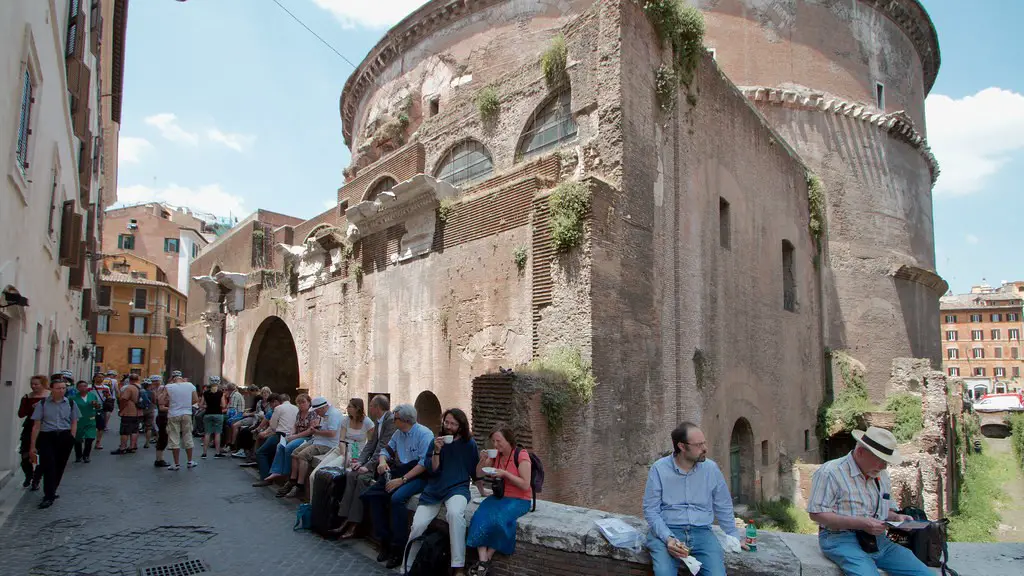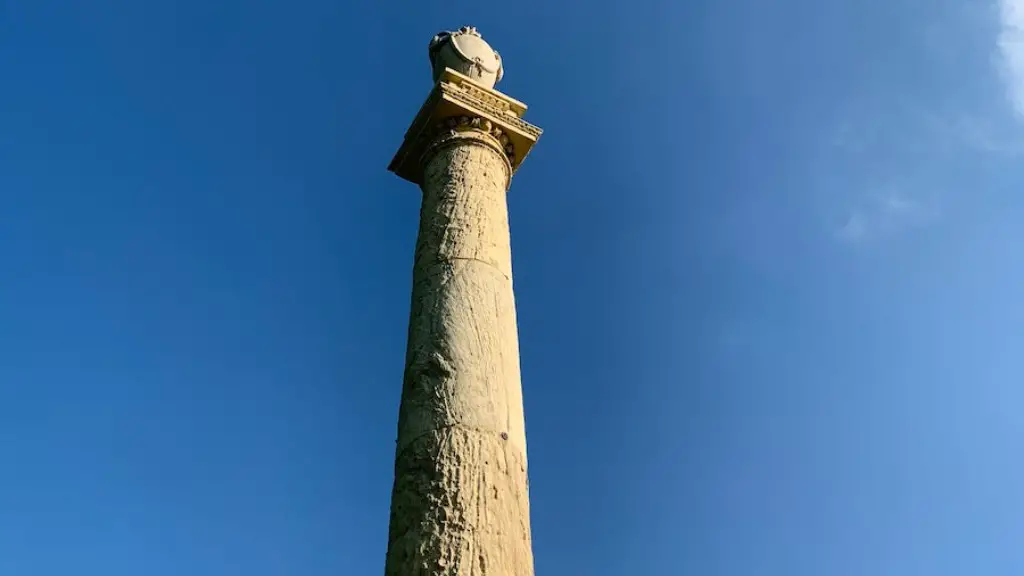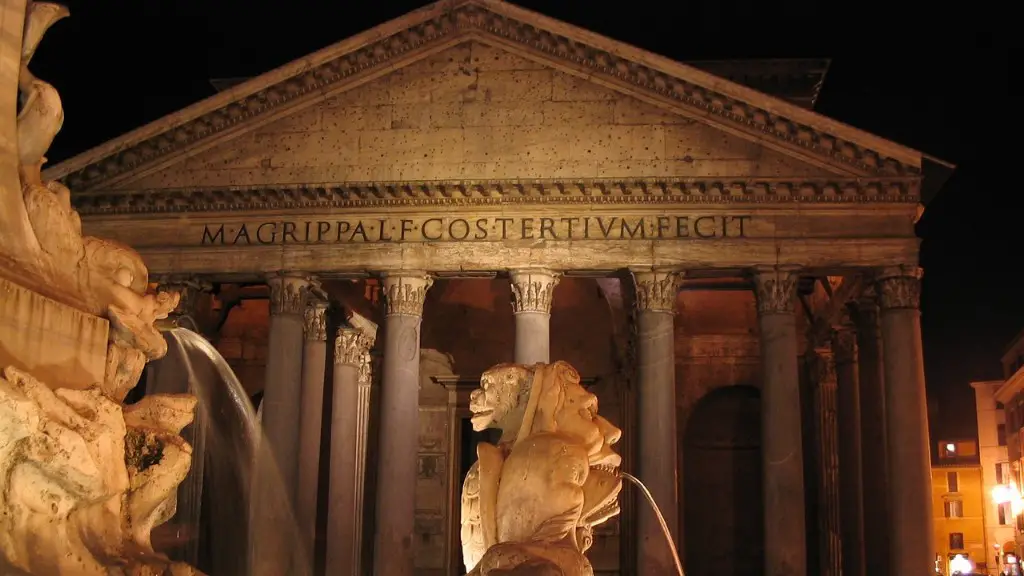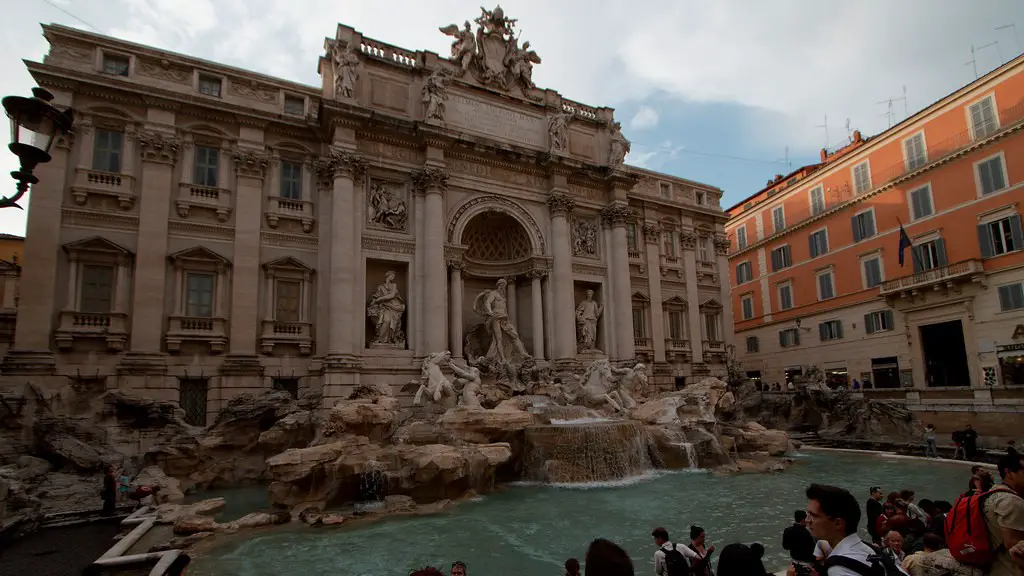The Properties and Powers of the Roman Senate
The Roman Senate was a body of influential politicians and advisors of the Roman Republic who wielded considerable power and influence in Roman politics. It was the governing body of Rome from the foundation of the city until its eventual expansion into an empire. At the height of the power of the Roman Senate, it had over 600 members. Its primary purpose was to provide advice and expertise to the Roman magistrates on matters of state, such as foreign affairs, taxation, and military strategy.
The Roman Senate was a high-level committee of elected officials. It was composed of aristocrats from the major families of the Roman republic, who were expected to share their knowledge and wealth with the Roman people. All senators were appointed by Roman magistrates, and they held their seats until replaced. They were obliged to swear an oath of loyalty to the Roman Republic.
The Roman Senate was an important part of the Roman government because it provided an effective check on the power of the Roman magistrates. The senate’s advice was sought on a variety of matters and was consulted by the magistrates on matters ranging from taxation, foreign policy and military strategy. The Senate would also debate, vote and, ultimately, ratify laws. In this way, the Senate helped to maintain political stability by preventing the magistrates from acting impulsively or making decisions that could be detrimental to the state.
The Roman Senate also enjoyed a high degree of prestige and respect, which was a reflection of its power. As such, it was an important political institution and a major part of the Roman Republic. It was the highest decision-making body in Rome and its rulings were considered binding on all members of the Senate. It was instrumental in the development of Roman law and the creation of laws that would be binding on everyone in the city.
The Roman Senate also played an important role in the Roman Empire. During the Imperial period, the Senate would advise the emperor on a range of matters and would work with him to promote the stability of the empire. In addition, the Senate had a significant role in the economy, managing taxes, the mint and the provincial governors. This ensured the continuity and stability of the Roman Empire.
The Board of Augurs and Its Role in Ancient Rome
The Board of Augurs were a priestly college consisting of two officials who were responsible for divining the will of the gods in Ancient Rome. The Board of Augurs had the power to declare certain activities to be sacred or profane and to veto any laws approved by the Roman Senate. This made it an important part of the Roman government and its decisions were highly respected.
The Board of Augurs was made up of two augurs, one chosen by the Roman Senate and the other chosen by the Roman people. The job of the augurs was to observe the heavens and interpret signs from the gods. This would be done through a process called haruspicy, which involved examining the entrails of animals. If they decided something was sacred, they would put their augury staff in the ground, otherwise known as an Augur’s staff. This symbolized their divination and protected the people from any wrong decisions made by the Senate.
The Augur was also responsible for carrying out religious ceremonies and declaring certain activities to be sacrilegious. This ensured that the Roman people and the gods were in harmony and that the laws of the Senate were respected. The Board of Augurs was the most powerful authority in religious matters and it was consulted before any major political decision was taken.
The Board of Augurs was an important part of Ancient Roman government and its decisions played a crucial role in the governance of the Roman state. It also preserved the cultural identity of the Roman people by ensuring that their religious beliefs were respected and obeyed.
The Master of Ceremonies and His Role in Ancient Rome
The Master of Ceremonies, also known as the Quaestor Sacrorum, was a senior official in Ancient Roman government responsible for religious ceremonies. The Quaestor Sacrorum was the head of the religious rites in the city and was charged with ensuring the preservation of their gods and traditions.
The Master of Ceremonies was a high-ranking priest and was usually elected by the people. He was required to lead religious ceremonies and to ensure that any sacrifices or sacred rituals were carried out correctly. The Master of Ceremonies was also responsible for overseeing the Vestal Virgins and their activities.
The Master of Ceremonies was a respected and influential man in Rome. He was responsible for officiating important ceremonies and rituals, such as coronations and funerals, and his word was regarded as holy law. He was also a political advisor and was consulted by Roman magistrates on religious matters.
The position of the Master of Ceremonies was an important part of Ancient Roman government. He was a prominent figure in Roman society and his officiating of religious rites and ceremonies ensured the preservation of their gods and traditions. His influence was so great that it was believed that his decisions could determine the fate of the Roman Republic.
The Praetors and Their Influence in Ancient Rome
The Praetors were the highest ranking magistrates in Ancient Rome who were elected each year by the Roman people. They were the executive branch of government and were responsible for conducting court cases and overseeing the Senate. They were a powerful group of officials who held considerable influence in Roman politics.
The Praetors had a wide array of powers and responsibilities in the Roman Republic. They could call meetings of the Senate and could veto any of their decisions. They were responsible for carrying out the laws passed by the Senate and were authorized to issue writs of execution. If a writ was issued, it was binding on all citizens of Rome.
The Praetors also had some judicial responsibilities. They were responsible for presiding over trials and assigning punishments. The Praetors could also act as arbitrators to settle disputes between individuals or between different factions. This gave the Praetors great influence over the Roman Republic and it was believed that the decisions of the Praetors could alter the course of history.
The Praetors were a powerful group of officials in the Roman Republic and their influence was keenly felt throughout the city. They were a vital part of the Roman government and their decisions were respected and obeyed by all.
The Tribunes and Their Role in Ancient Rome
The Tribunes were elected representatives of the people in Ancient Rome who were tasked with protecting their rights and interests. The Tribunes were selected by the Roman people to represent them and act as their voice in the Senate. This made them a powerful and influential group of officials in the Roman Republic.
The Tribunes were tasked with keeping the Senate in line and ensuring that the people’s interests were taken into account. They could veto any decision made by the Senate and could, if necessary, call them out of order. The Tribunes also had the power to pass laws of their own and could call upon the Senate to debate and vote on any laws or issues that concerned them.
The Tribunes were a powerful force in Roman politics and had a great influence in the functioning of the Roman state. Their position was respected, and their decisions were seen as a way for the people to express their wishes and concerns without the need for direct confrontation with the Senate.
The Tribunes were an important part of the Ancient Roman government and were a vital link between the people and the Senate. They were responsible for ensuring that the people’s interests were taken into account and their actions helped to prevent the Senate from becoming too powerful or tyrannical.
The Assembly and Its Role in Ancient Rome
The Assembly was the main decision-making body of the Roman people in Ancient Rome. It was comprised of the heads of the thirty families and was responsible for the election of magistrates and passing of new laws. The Assembly also had the ability to review and vote on any decisions made by the Senate.
The Assembly was a powerful force in Roman politics and its decisions were binding on all citizens of Rome. It was the ultimate political authority and could make or break any laws passed by the Senate. The Assembly also had the power to impeach magistrates and to remove them from office for failure to perform their duties.
The Assembly was an important part of the Roman Republic and its decisions were respected and obeyed by all. It was a major factor in preserving political stability and ensuring that the Roman state was governed by its laws. The Assembly also provided a forum for the people of Rome to express their opinions and concerns without direct confrontation with the Senate.
In conclusion, the Roman Senate, the Board of Augurs, the Master of Ceremonies, the Praetors, the Tribunes, and the Assembly were all major institutions in Ancient Rome and played an important role in the governance of the Roman Republic. The decisions of these bodies were highly respected and they helped to maintain political stability, preserve the cultural identity of the Roman people and ensure that the will of the gods was respected.
